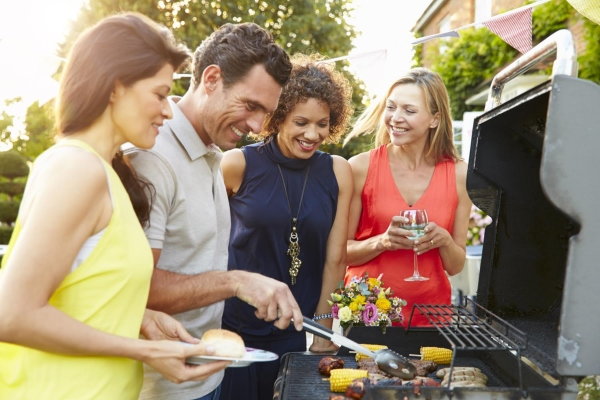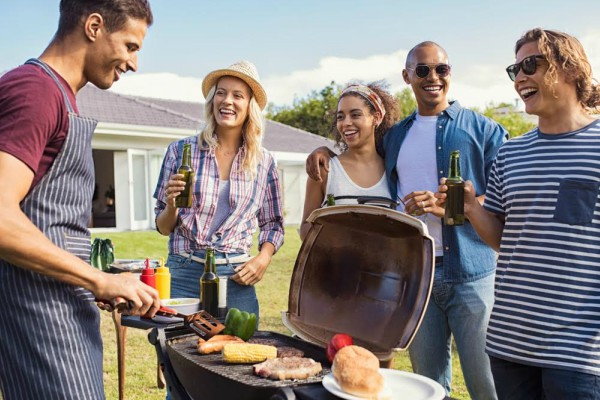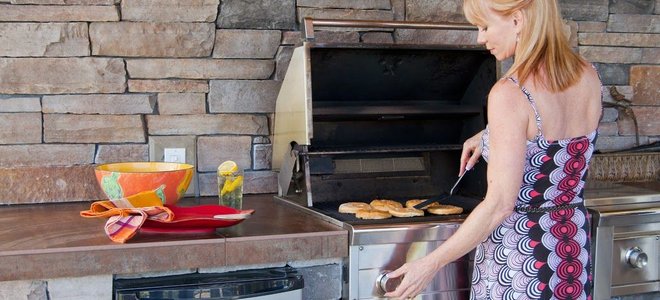A natural gas BBQ offers many advantages. Unlike propane, there’s no risk of ever running out of gas. Also, like all other gas barbeques, it’s easy to adjust the heat levels for perfect cooking. However, natural gas barbeques have their problems and others are a bit difficult to troubleshoot.
Coupler
Your natural gas BBQ attaches to the gas line with a coupler. Some people leave their BBQs hooked up all year. Sometimes, the coupler won’t work properly and either fails to connect or it keeps disconnecting on its own. If this is the case, try spraying it with some penetrating oil and reattaching it. If this doesn’t work, you’ll need to install a new coupler. This is an easy job that most people can do themselves.
No Gas

One of the most common difficulties that natural gas BBQs have is that there is no gas when they want to fire up the grill for the first time. This is usually a very easy fix because most times they have simply forgotten to turn the gas back on after closing down the line to the BBQ before winter. If this doesn’t rectify the problem, unplug at the coupler and listen for the noise of compressed gas escaping. If you can’t detect it, call a service person to check it.
Pilot Light
It’s important to keep your natural gas BBQ clean to ensure nothing obstructs the opening for the pilot light. This can make lighting it very difficult. When not in use, keep the lid of your BBQ down and clean the inside regularly. If you’re having difficulty lighting the pilot light, blow into it. This can often clear it. Or, if that does not work, try blowing compressed air into it.
Overcooking

One problem with natural gas BBQs is overcooking the food. Hot spots develop on the bbq which can result in burning if you’re not careful. The only way around this is to understand your grill and how it works. There’s no way to stop the hot spots so you need to be aware of where they are so you can work around them when using the grill.
Uneven Heat
If the heat between the burners is uneven, one or more of your burners might be corroded or rusted. Over time, grease and food can clog the holes on the burners. Along with the weather, this often causes corrosion.
You can clean out the holes one by one with a thick screwdriver. Finish by scrubbing with a stiff hand brush.
The other cause of uneven heat can be something in the gas line between the valve on your natural gas BBQ and the burner such as a dead insect. To solve the problem, turn off the gas, disconnect the line and immerse it in a suitable cleaning solution. You can also try pushing a straightened wire clothes hanger through the line and flushing it with a hose before reassembling.
Regulator
If your natural gas bbq has a low, yellow flame and isn’t giving out much heat, the regulator might be stuck. To remedy this, turn off the gas and disconnect the grill. Open the lid and turn all the controls to a high setting for a minute or so. Turn them off, reconnect the gas line and light the grill again.
Natural Gas BBQ Problems FAQ
Why won’t my natural gas grill stay lit?
The regulator that controls the flow of gas to the natural gas line will not keep the grill lit if it is malfunctioning. If your grill does not stay lit, the regulator could be going bad.
How do I know if my natural gas grill regulator is bad?
If your grill regulator is bad, there will often be signs that it is malfunctioning. Burners may light unevenly or the flames may behave strangely, for example.
You may also hear a popping noise when the burners are turned on or off.
How do you reset a natural gas BBQ regulator?
To reset your regulator, first make sure all the gas is turned off. Open the lid of the grill.
Turn the burner valves on and leave them on for about two minutes. Do not stand near the grill at this time, as you do not want to simply stand there and breathe gas fumes for two minutes.
Turn off the burners when the time is up. Turn the gas back on and light the grill.
This will reset your gas regulator and may get things working normally again. If your regulator is malfunctioning, however, resetting it will not fix the problem.
How often do you need to replace a regulator on a gas grill?
The regulator on a gas grill should be replaced every five years, on average. If there is any damage to the regulator, it will need to be replaced prior to this.
Do natural gas valves go bad?
Gas valves do wear out and stop working properly over time. When that happens, the valve needs to be replaced.

